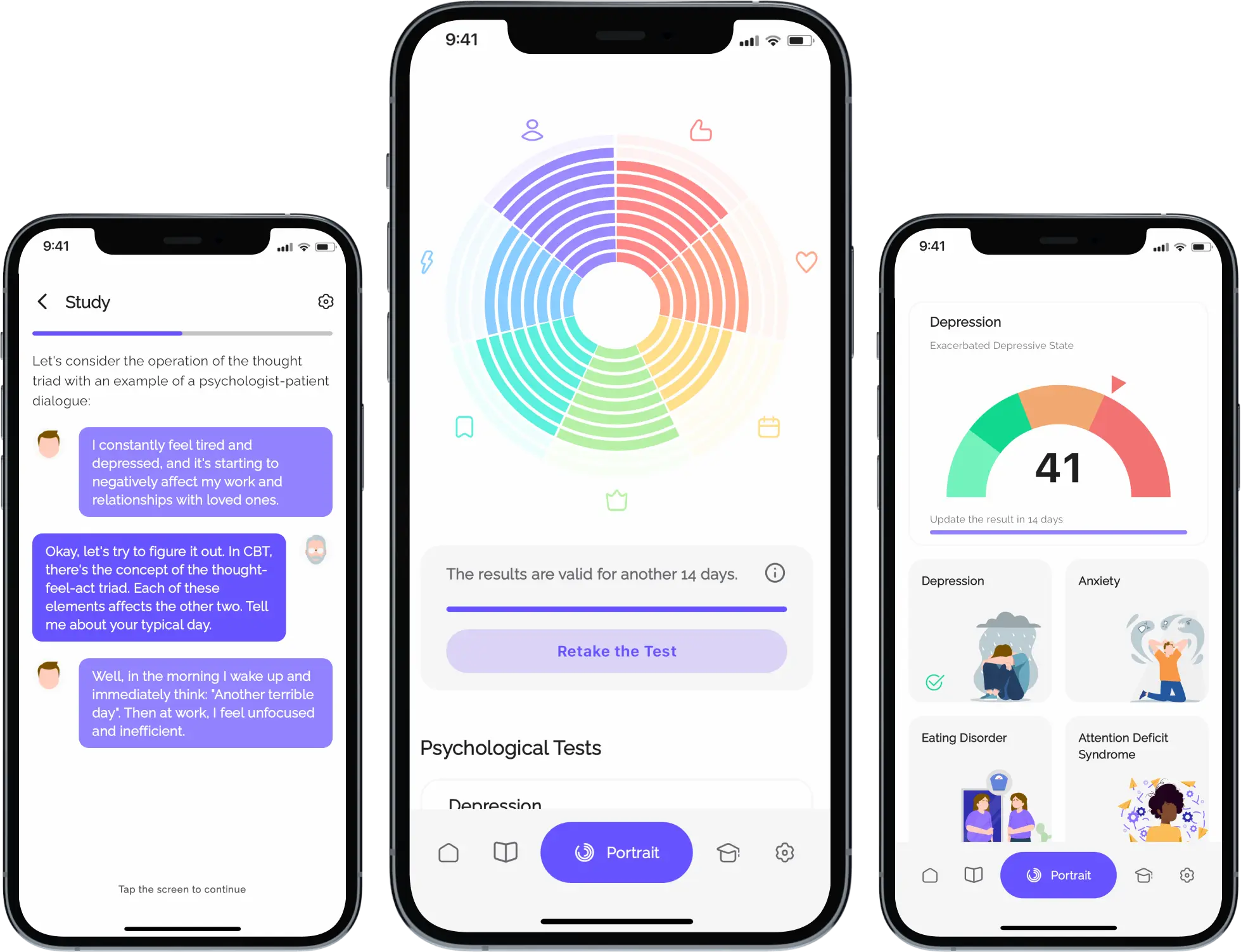
Now let’s move further down the tree to its trunk.
This trunk represents what we call “intermediate beliefs.”
Often referred to as “rules,” intermediate beliefs serve as our internal filters for understanding the world around us.
Here are a few examples:
More content in our app
You're only seeing a portion of the content. In the app, you'll find numerous interactive articles. Additionally, there are psychological tests to track your mood dynamics, a daily planner, an automatic thought journal, and much more!

These beliefs often take the form of an if-then statement. If that helps you frame them, feel free to use “if.”
Let’s see how intermediate beliefs link up with automatic thoughts.
Automatic thought: She didn’t answer my message, so I must have done something wrong.
Intermediate belief: If I always please others, then I will be loved.
Automatic thought: I feel bad, but if I go to the doctor, I’ll look weak.
Intermediate belief: I have to be strong, or I’ll lose everyone’s respect and love.
Automatic thought: I was late for an important meeting. Now they’ll all see that I’m a failure.
Intermediate belief: If I make a mistake, it means I’m a total failure.
As you can tell, there’s a direct connection between the automatic thoughts we have and the personal “rules” we’ve adopted (our intermediate beliefs).
Most of our beliefs are acquired in childhood, when our psyche is still developing.
Parents often say things like:
So, a man who’s taken “Men don’t cry” to heart can’t express his own feelings; pent-up emotions may turn into aggression or lead to depression.
Likewise, the food-related belief can become fertile ground for eating disorders.
We need to be mindful of what we teach our children, because otherwise, they might need therapy later in life to unlearn destructive beliefs.
Your beliefs become your thoughts, your thoughts become your words, your words become your actions, your actions become your destiny.
Mahatma Gandhi
In therapy, it’s crucial to recognize your intermediate beliefs and then decide whether they’re harmful to you.
We’ll talk more about how to address intermediate beliefs later, but in the next chapter, we’ll delve even deeper—to the most fundamental level of our beliefs.








